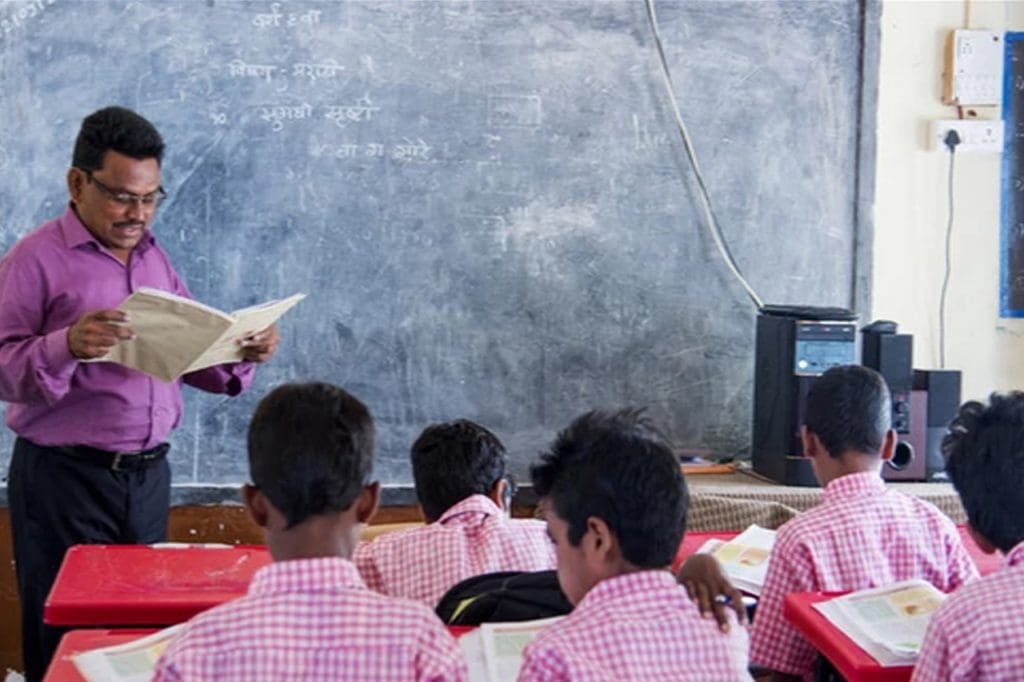India ranks among the world’s top 10 countries when it comes to valuing its teaching workforce, according to a new 35-country global survey-based report — ‘Reading Between The Lines: What The World Really Thinks of Teachers’.
India ranks among the world’s top 10 countries when it comes to valuing its teaching workforce, according to a new 35-country global survey-based report. ‘Reading Between The Lines: What The World Really Thinks of Teachers’, released by the UK-based Varkey Foundation last week, found that India was sixth when it comes to people’s implicit, unconscious and automatic views on the status of teachers in the country.
The Implicit Teacher Status analysis, which finds China, Ghana, Singapore, Canada and Malaysia ahead of India, ranks countries by respondents’ automatic impressions of teachers when asked to indicate as quickly as possible whether, for example, they think teachers are trusted or untrusted, inspiring or uninspiring, caring or uncaring, intelligent or unintelligent, among other word associations.
“This report proves that respecting teachers isn’t only an important moral duty – it’s essential for a country’s educational outcomes,” said Sunny Varkey, Founder of the Varkey Foundation and the Global Teacher Prize.
“Since the coronavirus pandemic first emerged, we have seen 1.5 billion learners across the world impacted by school and university closures. In these unprecedented times, now more than ever it is necessary to do all we can to ensure young people throughout the world have access to a good teacher,” Mr Varkey said.
The report, which builds on the data gathered by the Global Teacher Status Index (GTSI) 2018 – a 35-country survey conducted from 1,000 representative respondents in each of the countries – confirms the link between teacher status and pupil attainment.
The new report seeks to explain for the first time why “Implicit Teacher Status” varies between countries. It finds that teachers generally enjoy higher status in richer countries, and in countries that allow a greater fraction of public funds to education.
For instance, India’s expenditure on education as a percentage of government spending is 14 percent. In Italy, which ranks 24th for Implicit Teacher Status, by comparison, it is only 8.1 percent, whereas, in Ghana, which ranks second, it is 22.1 percent.
The report coincides with the announcement of the finalists for the 2020 Global Teacher Prize, which includes Ranjitsinh Disale – a teacher from a village in Maharashtra who is in the running for the USD 1-million annual prize, to be unveiled later this year.
“We created the Global Teacher Prize, which shines a light on the extraordinary work that teachers do around the world, to inspire people to talk about the great work of teachers. We have seen teachers go above and beyond to keep young people learning all over the world amid the Covid pandemic,” added Mr. Varkey.
As part of the new report’s analysis, Professor Peter Dolton of the University of Sussex and Doctor Robert De Vries of the University of Kent reassessed the GTSI data to find a remarkably strong positive correlation between Implicit Teacher Status and the Organisation for Economic Cooperation and Development’s Programme for International Student Assessment (PISA) results.
PISA scores are significantly higher in countries where people implicitly view teachers more positively.
PISA scores are significantly higher in countries where people implicitly view teachers more positively.


